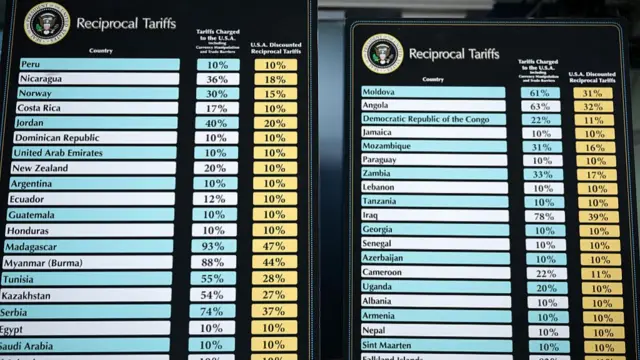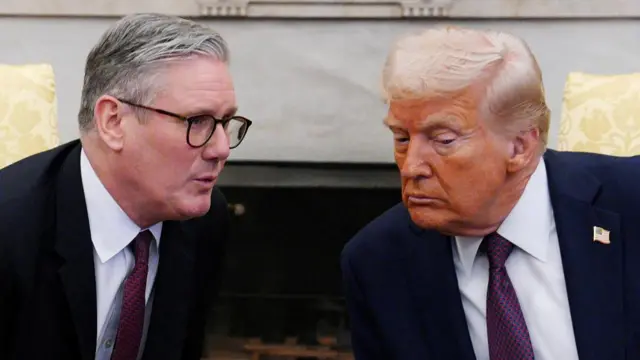US could be worried about a co-ordinated responsepublished at 10:28 BST 4 April
 Faisal Islam
Faisal Islam
Economics editor
All the chips have been thrown up in the air by the American actions. All assumptions about how global trade functions will have to change.
Some of the seasoned market observers I’ve spoken to suggest that even the sharp falls we saw in the US markets yesterday are underpinned by the idea that this full tariff package won’t actually happen.
But if it does, it raises serious questions about whether the US government’s approach is undermining the strategies of some of America’s biggest blue-chip businesses.
Their current supply chain strategies involve finding the most cost-effective places in the world to make their goods. Now, they’re being told to “make American”.
There’s another factor here. Most of the world’s trade doesn’t happen through America. I've been struck by a lot of the comments from around the world – with many nations not wanting to be seen to give in to what they see as coercion from the US.
We’ve already seen the Canadians try to join forces with the EU. Some of Trump’s proxies on social media are saying world leaders should strike a deal with the US president now – get to the front of the queue – because they’re worried, I think, about a co-ordinated response.


















